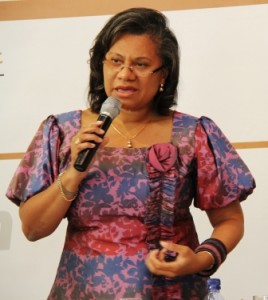“The weather becomes more extreme and erratic. Storms, heavy rains and floods destroy fields and houses, and kill animals and people every [...]]]>
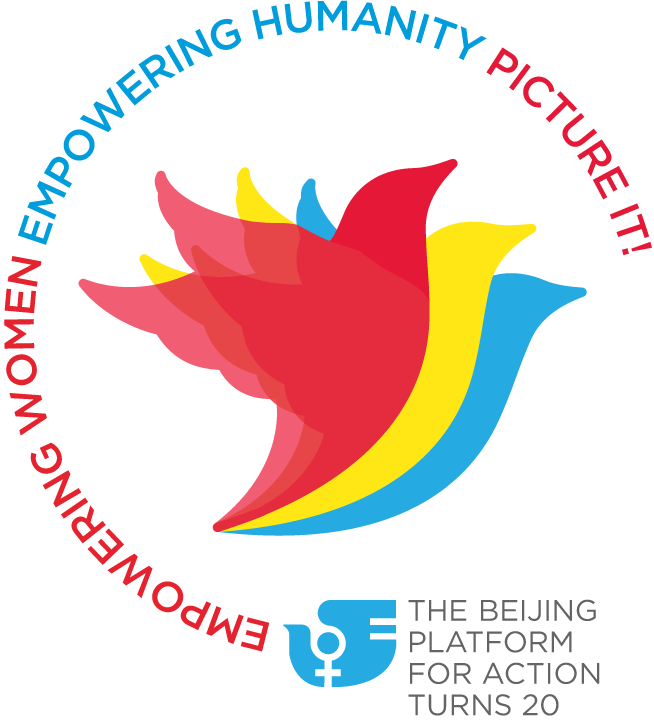 “The weather becomes more extreme and erratic. Storms, heavy rains and floods destroy fields and houses, and kill animals and people every year,” said Ranh Nguyen, 35, a farmer and the head of the Women’s Union group in An Dung commune, in Binh Dinh province, central Viet Nam.
“The weather becomes more extreme and erratic. Storms, heavy rains and floods destroy fields and houses, and kill animals and people every year,” said Ranh Nguyen, 35, a farmer and the head of the Women’s Union group in An Dung commune, in Binh Dinh province, central Viet Nam.
There, Ranh and her neighbours have joined the Vietnam Women’s Union and are working with UN Women to strengthen the role of women in disaster risk-reduction and disaster-reduction management.
Some 80 km from the city of Binh Dinh, An Dung commune is always at high risk of flooding as it only has one road connecting it to other communes, and landslides often occur during the storm season. Almost every year, the commune suffers at least one severe flood that damages crops and houses heavily. And women are often the most affected.
However, things are starting to change.
“Thanks to good preparation and detailed mapping that we developed in the meetings before each storm, nobody in the village was killed or injured severely in the last year storm season. Crops, fowl and cattle were saved,” explains Ranh, now an official member of the Committee for Flood and Storm Control in her commune.
Prior to the project, there were few women on the Committees for Flood and Storm Control (CFSC) in the village. Through the training of women in disaster management, as well as national lobbying – supported by UN Women, the United Nations Development Programme (UNDP) and other stakeholders – the contribution of women has been recognised. A government decree issued in September 2013 now provides an official space for the Women’s Union in decision-making boards of the CFSC at all levels.
“After being involved in the project, I am more aware of the situation of climate change and its impacts on us. Last year, we participated in the training and exchanged experiences with other women. We prepared better for our families and our village before the storm came,” Ranh said. She said that she talked to the other members of the communal committee for flood and storm control. As a result, before the flooding began, they had plans ready to evacuate people living in lowland areas and near the river.
“The mapping we did together in the training was really helpful. We discussed how to encourage people to harvest earlier before the storm season started.” In the end, she said, no lives were lost.
Last year, a four-year-old boy was saved from drowning because his mother performed CPR on him. She and another 120 women and girls learned this technique from the Rescue and First Aid training provided by the project.
“I could not swim before and used to be frightened by the flooded river. But now I am no longer afraid of water thanks to the swimming classes. I will teach my children how to swim and tell other people to learn how to swim too,” Ranh said.
This project continues to be implemented in four new provinces including Thua Thien Hue, Quang Binh, Ca Mau and Dong Thap, all of which face a high risk of flooding.
This article is a contribution to UN Women’s campaign ‘Empowering Women – Empowering Humanity: Picture It!’ More at: beijing20.unwomen.org
]]>
As a psychologist working in an HIV programme at the University of Pretoria, South Africa, I have [...]]]>
As a psychologist working in an HIV programme at the University of Pretoria, South Africa, I have counselled many students about sex over the years. Many of these students lack confidence, comfort and literacy around sex that empowers rather than embarrasses them.
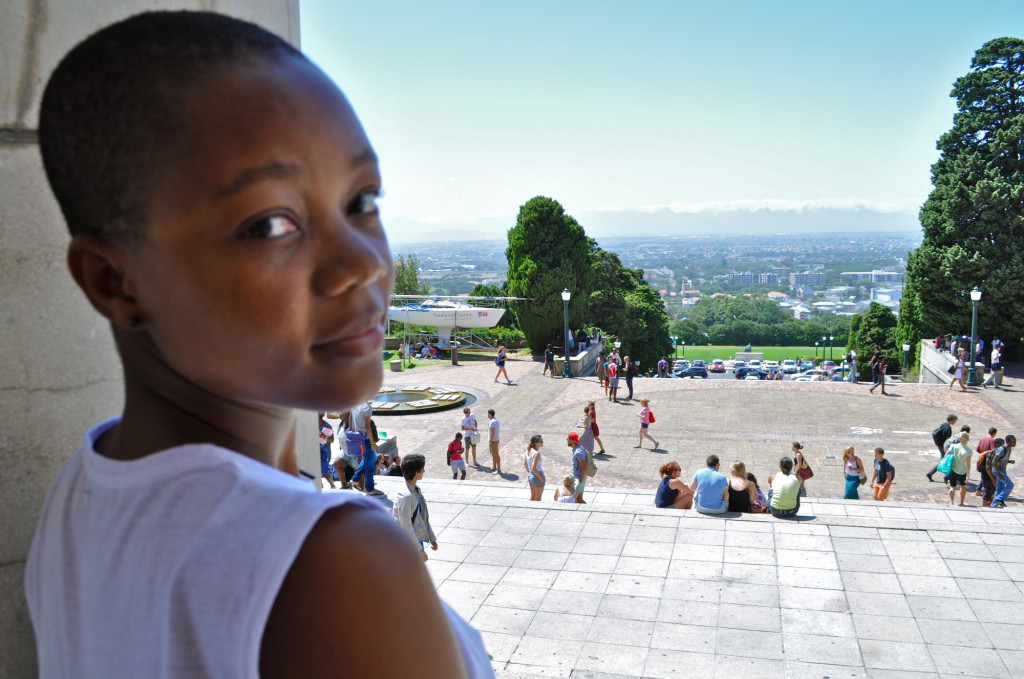
While a university cannot be all things to all people, it can promote the idea that everyone has a right to sex that is healthy and mutually enjoyable. Credit: Rebekah Funk/IPS
Despite living in a country where an early sexual debut is not unusual, where sexual assault and rape are endemic, and where surveys show university students are having sex and sometimes contracting HIV, we seem to think that if we control, manage and inhibit the sexuality of young people, we will somehow keep them from harm until that magical day when they meet their similarly abstinent and “pure” life partner, releasing them into each other’s arms for a life of wonderful, safe, healthy and faithful sex.
This ambivalence about young people’s sexuality is evident in the response of the state. Yes, we have, on paper at least, an excellent Life Orientation programme in schools.
But while there are pockets of excellence and dedication, often the work is done by teachers who are not well motivated or trained, who themselves struggle with their own relationships and sexuality, and who are often quite conservative about sexual norms and different sexual orientations.
Coexisting paradigms
This awkwardness about youth sexuality carries over into many university spaces and programmes where different paradigms co-exist, each with its own challenges and possibilities.
Many campus health programmes, not surprisingly, adopt a public health approach: seeing students as rational actors who, if given the correct health information and warnings about disease, HIV and pregnancy, will simply choose not to have sex, or if they must, will use condoms and contraceptives all the time.
While students may be given tests and access to contraception, and sometimes even the morning after pill, a sense of a finger wagging goes along with these technologies.
Yet the language of disease, risk and infection runs counter to the experience of desire, pleasure, transgression and power, which drives many sexual encounters.
The public health approach often fails to factor in these elements – less amenable to rational thinking – and glosses over the relationality of sex; meaning that we make decisions, some conscious, some less so, based on the dynamics of the moment and the person we are with.
Another paradigm is the idea that the university “stands in” for the parents of the student, setting boundaries and limits to sexual expression, perhaps even invoking the language of morality, to define the kind of sexual citizen the student is expected to be: preferably abstinent, hopefully faithful and definitely heterosexual.
Evidence for this: constrictions on sexual expression in residences, attitudes towards pregnancy and abortion, the privilege given to religious voices on some campuses, and the use of parental titles in residences (house mothers and fathers).
Paradoxically, the free availability of alcohol and inadequate approaches to understanding and managing drug use, complicate this picture, placing more pressure on universities to control sex and sexual expression, and act as parent figures.
Sexual competence
The most hopeful approach, in my view, is the sexual competence one developed by British sociologist, Julia Hirst.
Sexual competence means being able to negotiate sex that is safe (both in terms of disease and in terms of the physical space it occurs in) and mutual, by people with a positive sense of their sexual selves and identities.
It does not assume heterosexuality or privilege vaginal penetration, recognising that we all need a repertoire of ways to give and receive pleasure.
To be sexually competent means having a confident and fluent language for sex; it values personal feelings of control in decision making. It can also mean being fully comfortable in saying no to sex, not from a position of fear and shame, but from a place of recognition of what one really wants.
In my years as a psychologist, I have worked with many adults who have unhappy and complicated sex lives. Young people need not follow this path.
While a university cannot be all things to all people, it can promote the idea that we all have a right to great sex which is equal and not exploitative, which is healthy and mutually enjoyable.
To achieve this, universities need to get real and be open to new conversations with and about their students’ sexual cultures, identities and practices.
Pierre Brouard, director of the Centre for the Study of AIDS at the University of Pretoria, South Africa, is a clinical psychologist interested in sexualities, gender, human rights, and finding just the right word to grace a sentence, convey empathy or complete a crossword.
]]>The topic of natural resource management posed a critical question during the current 58thsession of the Commission on the Status of Women (CSW): how can women utilize their knowledge for managing natural resources to promote peace and develop themselves?
The answer lays in the experiences of local Liberian women who [...]]]>
The topic of natural resource management posed a critical question during the current 58thsession of the Commission on the Status of Women (CSW): how can women utilize their knowledge for managing natural resources to promote peace and develop themselves?
The answer lays in the experiences of local Liberian women who actively encouraged their fellow citizens to educate themselves about land ownership and management - especially because women own less than one percent of the land in Liberia.
In a partnership with United Nations Peacebuilding Support Office(PBSO) and United Nations Entity for Gender Equality and the Empowerment of Women (UN Women), civil society, governments and non-profit organizations met to discuss the mobilization of women and natural resources in a CSW side event titled ‘Turning Money into Honey: Women’s Role in the Management of Natural Resources and Extractive Industries in Liberia for Durable Peace.’
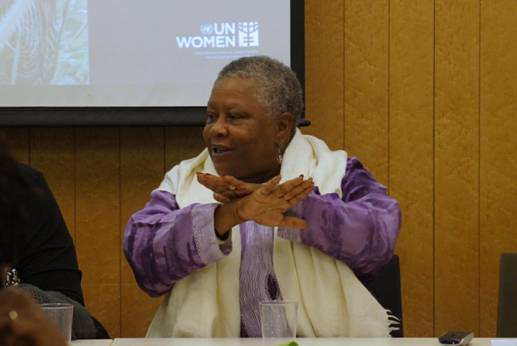
Etweda “Sugars” Cooper addresses audience at CSW side event on women and natural resource management in Libera. Credit: Lusha Chen/IPS
A new report (Women and Natural Resources – Unlocking the Peacebuilding Potential) by UN Women, United Nations Development Programme (UNDP), United Nations Environmental Programme (UNEP) and PBSO explores the relationship between women and natural recourses, in order to strengthen women’s contribution to resolving conflict, entities should focus on how women manage, use and make decisions about natural resources
“We are the drivers of our country.” said Edtweda “Sugars” Cooper, a leader of the Liberian women’s movement who spoke during an informal meeting at the Swedish mission Wednesday afternoon.
Land in particular, is one of the most important aspects of a woman’s livelihood in Liberia and has recently been a topic of controversy as corporate companies seek economic gains within the country.
Alice “Old-Lady” Kamara, a rural women’s activist and head of the women’s “Peace Hut” in Henry’s Town, Gbarpolu County, Liberia told the story of a logging company that destroyed forests, damaged roads and ultimately polluted the water system.
The situation came to a head when Kamara and other local women took matters into their own hands and rallied against the logging company, creating a roadblock and driving them out of the town.
The women feared the destruction of their roads would prevent them from transporting goods to the market – an essential part of both their economic and social development.
This form of retaliation served as a reminder to governments and big corporations that women in Liberia view the land not only as a means to create a life, but also as an empowerment tool.
“You can’t take away our livelihood.” Cooper said, commenting on the importance of allowing women to stand up to corporations and authorities that dismiss their eligibility to manage natural resources.
“Women are skilled, we’re are managers. In Liberia, in a farming community, the woman will clear the land; she plants, she harvests, she processes, she markets the produce from the land.”
UN Women together with their counterparts in Liberia call for the recognition of women as integral land developers, managers and business owners.
Using Liberia as a success story, three major points are defined: education of women in such a way that promotes skill, literacy and empowerment, enforcement of gender sensitivity from the local level to the parliamentary level and economic investment for locally owned businesses.
After a 14-year civil war that left the country destabilized, Cooper believes no one should underestimate the strength of women in Liberia. “We bring skills to the table and those skills will help with the development of our country.” she said.
Liberia is home to over three million people and according to UN Women—about half of them are women.
UN Celebrates Cultural Diversity and Multilingualism
By Jean-Baptiste Viallet
UNITED NATIONS, Mar 21 2014 (IPS) – “We live in a multicultural world. The language we speak affects both the way we think and act,“ said Under-Secretary-General Peter Launsky-Tieffenthal, the UN Coordinator for Multilingualism, at a roundtable discussion on the occasion of the International Francophonie Day on Thursday.
The discussion focused on both cultural diversity and multilingualism, which play an essential role to spread the message of the United Nations throughout the world.
Currently, about 220 million people speak French in 77 countries that are official members of the International Organization of la Francophonie (IOF).
Panelists highlighted the importance of multilingualism for a better understanding of the contemporary world. “Multilingualism is a basic condition to the establishment of an international cooperation,” said Launsky-Tieffenthal, head of the department of public information (DPI).
He added that cooperation and common values have the power to reinforce creativity and build a more inclusive society.
Ambassador Mohammed Loulichki, Permanent Representative of Morocco to the United Nations and President of the Group of Francophone Ambassadors, stressed the need to stand up for multilingualism, which is a federative and connected process.
“Diplomacy and culture have so much in common,” he said.
Manu Dibango, a well-known Cameroonian saxophonist, singer and UNESCO Artist for Peace in 2004, underscored the contribution of artists with a view to peace.
“The constant struggle for peace still exists because war is still in place,” said Dibango. “Between peace and war, artists try to create room for dreams.”
The Chief of Cabinet of the UN High Representative for the Alliance of Civilizations, Tariq Al-Ansari,singled out the issue of cultural diversity and multiculturalism in the service of effective international action.
He said that Francophonie is not only a language; it is also about how civilizations can share and communicate with each other.
“Better languages provide better opportunities to understand each other correctly,“ Al-Ansari added. “Francophonie is a catalyst between nations,“ he stated.
By its singular network throughout five continents, and by educational, cultural and political initiatives, Francophonie contributes to the elaboration of a better comprehension between nations.
“Culture must play a stabilizing role as regards human rights and development,” said Filippe Savadogo, Permanent Representative of the IOF to the United Nations.
Quoting Léopold Sédar Senghor, Senegalese poet, politician, cultural theorist and first president of Senegal, he underlined the fact that “culture is at the beginning and the end of development.”
]]>** Dr. Julitta Onabanjo is the Regional Director for UNFPA’s East and Southern Africa region, stationed in Johannesburg
Recently, a 14-year-old girl from Kakamega County in Kenya gave birth to a set of triplets, fathered by a boy aged 16. The phenomenon of children having babies is not limited to Kenya; it occurs [...]]]>
** Dr. Julitta Onabanjo is the Regional Director for UNFPA’s East and Southern Africa region, stationed in Johannesburg
Recently, a 14-year-old girl from Kakamega County in Kenya gave birth to a set of triplets, fathered by a boy aged 16. The phenomenon of children having babies is not limited to Kenya; it occurs in many African countries.
Fifteen-year-old Ida, from Mozambique, became pregnant when she was 13 years old while 25-year-old Mariel, from Madagascar, got pregnant when just 13 years.
Each year, 7.3 million girls under the age of 18 give birth in developing countries — of these, around 2 million are under 15.
As an African mother, I would not like my daughter, or niece – or any young girl, for that matter – to get pregnant at an early age, not just because it would compromise their life opportunities, but also because medically and psychologically, teenage pregnancy poses high risk for both the adolescent girl and her child.
The trend of children giving birth to children should not be allowed to continue. This is why UNFPA’s State of World Population 2013: Motherhood in Childhood, launched this week, addresses the challenge of adolescent pregnancy head on.
The social drivers of adolescent pregnancy in our society are well known. They include impoverishment, social marginalization and child marriage. Others are limited choices and opportunities in life, or inadequate access to sexual and reproductive health, including contraceptive information and services.
As the report notes, “Every day, 20,000 girls below age 18 give birth in developing countries,” most of them from lower-income rural households. Many of these girls are also nutritionally deficient.
Pregnancy has enormous consequences for a young girl. Broadly speaking, it alters the course of her life, seriously affecting her health, education and income-earning potential.
Pregnancy and childbirth are the leading cause of death for adolescent females in developing countries, resulting in 70,000 deaths annually. Likewise, health problems such as obstetric fistula are more likely if a girl becomes pregnant too soon after reaching puberty.
When girls leave school due to pregnancy or for any other reason, their economic prospects are jeopardised, while their opportunities in life might be severely truncated.
A call to action
Thus, addressing motherhood in childhood requires institutional and community responses, as well as individual commitment. Programmes that target the girl child need to take into account the broader social drivers of the problem.
For instance, we need to address the underlying factors of adolescent pregnancy, including gender inequality, poverty, sexual violence and coercion, child marriage, social pressures, exclusion from education and lack of job opportunities. We must also address the negative attitudes and stereotypes about adolescent girls that contribute to the problem.
An important area of concern is inadequate access to comprehensive sexuality education and youth friendly information and services where their privacy and confidentiality is maintained. Teenagers need to be fully informed on how to protect themselves from unplanned pregnancies.
Adolescents and young people also need holistic development, which focuses on creating a safe and supportive environment for accessing information, services and platforms for participation and advocacy.
Communities, including religious and traditional leaders, school authorities and social protection officers should work to protect the rights of girls in teen pregnancy and child marriage. This is where some of the conditions, norms, values and structures that perpetuate adolescent pregnancies can be changed.
Specifically, our boys and men should respect the rights of adolescent girls and not cajole or coerce them into sex. It is absolutely critical that our young people are enabled to protect themselves against sexually transmitted infections, especially HIV – the second main cause of death among young women in Africa.
And as so many adolescent girls die from unsafe abortions when choosing to terminate their unplanned pregnancies, they must be granted access to modern contraceptive and safe abortion services.
All said, our children should not be having babies. It is our collective duty to ensure that adolescent and young people achieve their full potential through quality education, health information and services, gainful employment and being protected from unplanned pregnancies and child marriage.
Now is the time to harness and invest into the resilience of our young people to achieve great dividend for the African continent.
]]>Two weeks ago I met Jeanne and Hubert Mwangaza in a poor suburb of Lubumbashi, Democratic Republic of Congo (DRC), where I was on a video assignment with UNICEF. Hubert could not wait to tell me – on camera – [...]]]>
Two weeks ago I met Jeanne and Hubert Mwangaza in a poor suburb of Lubumbashi, Democratic Republic of Congo (DRC), where I was on a video assignment with UNICEF. Hubert could not wait to tell me – on camera – how proud he is that all his children are HIV negative. Him and his wife are both HIV positive.
When they met, Jeanne had given up any hope to have children. Hubert convinced her that prevention of mother-to-child transmission could give them HIV-negative babies.
He accompanied Jeanne to ante-natal visits and checked that she took her antiretroviral medication regularly. He was with her during each birth of their three daughters and when they were tested for HIV.
For her last-born, Marie, Jeanne was put on the new revolutionary one-pill-a-day antiretroviral treatment known as life-long treatment.
Women on this new regimen are able to breastfeed their babies safely for six months, provided that they adhere to the treatment. Marie has to take another HIV test at six and 18 months, but Hubert is confident that his little girl, like her elder sisters, is born without the virus.
Only a few years ago, this family’s story would have been the exception rather than the rule. Today, Botswana, Ghana, Namibia and Zambia have virtually eliminated new HIV infections in children, and a few more countries in Africa are close behind them.
However, children’s access to antiretrovirals remains unacceptably low – only three in 10 eligible children receive HIV treatment in many of the most affected countries.
Dramatically improving these numbers is among the top goals for the 22 priority countries targeted by the Global Plan that aims to elimination new HIV infections among children by 2015 and keeping their mothers alive.
Securing child health is only a fraction of the job to be done. Too many women are getting infected and not all pregnant women living with HIV are accessing life-saving treatment.
Between 2009 and 2012, there has been no decrease in the number of new HIV infections among women. We need to redouble efforts in preventing HIV among adults- and especially young women- through a combination of safer sexual behaviour, voluntary medical male circumcision and use of antiretroviral therapy among discordant couples.
Voluntary family planning services for all women, including women living with HIV, can prevent unwanted pregnancies and help reduce new HIV infections among children. Young women in particular should have access to voluntary planning and comprehensive information about preventing HIV.
In the next months, Inter Press Service Africa, in collaboration with UNAIDS, Unicef and UNFPA, will tell many stories like Jeanne and Hubert’s — stories of courage and resilience that will rekindle our hope that a generation of babies born without HIV to healthy mothers living with HIV is around the corner. Other stories will highlight challenges to solve if we are to turn that corner by 2015.
The Countdown to Zero New HIV Infections project explores community, policy and expert efforts across Africa to achieve these goals through in-depth feature stories, portraits and testimonies.
Follow the stories here: http://www.ipsnews.net/news/projects/countdown-to-zero/
Enter the conversation:
Facebook: www.facebook.com/countdowntozeroHIV
Twitter: @ZeroNewHIV
]]>By Suvendrini Kakuchi
Chihiro Amano is an aspiring film director and at just 29 years old, is already an icon in the male-dominated Japanese film world. With less than two percent of female directors in Japan, Amano is daring to break gender barriers. And slowly she is going places.
Speaking to IPS in Okinawa [...]]]>

By Suvendrini Kakuchi
Chihiro Amano is an aspiring film director and at just 29 years old, is already an icon in the male-dominated Japanese film world. With less than two percent of female directors in Japan, Amano is daring to break gender barriers. And slowly she is going places.
Speaking to IPS in Okinawa where she is one of two Japanese female directors presenting at the Okinawa International Film Festival, Amano explained her ambition is to become a well-known director on par with her male counterparts. “Striving to get ahead professionally,” she explained,” is probably better to pave the way for more female directors
in Japan.”
Indeed, Amano’s films do not necessarily push women’s rights. Rather, she thinks the way forward is to make a name for herself. “We can be role models to encourage our counterparts to also challenge the norm,” she said.
Amano represents Japan’s younger generation who are more supportive of gender equality in comparison to their parents. Female university graduates, for example, aim for economically independent lives. In contrast, their mothers commonly stopped working after starting a family. Current surveys indicate that more than 50 percent of Japanese
women in their twenties are single and intend to hold onto their careers after marriage.
Japan’s plunging national birthrate, now at 1.3 births per woman, is often cited as the result of women marrying late. The average age of marriage for women stands at 29—much higher than the 23 years registered two decades ago. Yet, despite the breakthroughs, women’s activists point out that many plucky females face an uphill struggle with the lack of opportunities to become leaders in Japan where such positions continue to be a male domain.
As for achieving their dreams in a competitive job market, the going is tough for both sexes and therefore particularly hard on women who also face traditional social role expectations.
Amano is painfully aware of the long road ahead. Leaving a stable job in the corporate world, the soft-spoken film director explained she threw caution to the wind when she wanted to follow her dream. “I just wanted to do films,” she said.
Currently, Amano juggles a part-time job with her film making and lives with housemates to cope financially. But the tradeoff is the pursuit of her art. Amano’s movies have been screened in international film festivals and she has won multiple awards for her skillful and delicate direction.
In Okinawa, her film, “Neverland in Gamagori” is debuting in the Local Origination section—the festival’s special focus this year, now in its fourth. Located on Japan’s southern most island, which has its own distinct language and culture, the festival has earned a reputation for its unique focus on local towns and villages across the world.
Gamagori is a beautiful seaside resort in northern Japan and, like other smaller towns and villages, is fighting against economic decline as the youth leave for the big cities. The film brings to the audience the forgotten ethereal nature of the resort, based on a fantastical adventure of a young local boy.
Hiroshi Osaki, president of Yoshimoto Kogyou company, a leading entertainment conglomerate that co-sponsors the film festival with the Okinawa prefectural government, explains that the annual event is aimed at showcasing the historical uniqueness of Okinawa, which he says has long been sidelined by the richer mainland.
“There is a need to emphasis the often neglected energy of local communities in Japan, and what better way to achieve this goal than to support a film festival that is dedicated to this cause?” he asked.
True to that theme, many of the 300 films shown to packed audiences were selected on the basis of presenting the unique aspects of Asian cities.
Asano says she is grateful to be able to share her film in Okinawa. The island of 200,000 is home to a controversial American military base and represents the only place where Japan fought a bloody ground battle against the United States at the end of World War II.
“Being able to screen at a film festival here means a lot to the Japanese given the traumatic past. I am proud of the opportunity to feature the beauty of lost towns, ” she said.
]]>Two journalists were arrested: Yehia Qalash, who is a member of the union board, and Mohammed Abdel Qodoos. Qalash was released later on, but Abdel Qodoos is still in custody.
This is the second day of protests with far more police presence. Security is more intense outside important buildings including the TV and Radio building overlooking the River Nile. Soldiers look ready for a fight today.
In the industrial city of Mahala, police virtually cordoned off the city. My sources in the city tell me the police ordered early dismissal of textile factory workers to preempt any organized protests of workers after work. They also blocked all traffic to some streets leading to the city center square, Al-Shoon Sqaure, where thousands demonstrated yesterday.
The protests are not asking for anything specific this time. They want the government out. It is that general.
]]>Guest Blogger Tapuwa Ayeh
Like many women, I have always wanted to be a mother and motherhood was supposed to be part of my life journey. Well life is not always going to be what you planned. For years, I went through a painful emotional journey of trying to get pregnant, and alas, failing [...]]]>
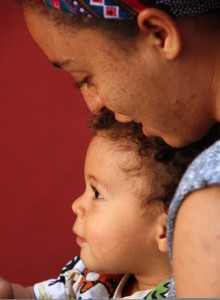
Not everyone is able to have a biological child. Credit: Kirstin Paliza/IPS
Guest Blogger Tapuwa Ayeh
Like many women, I have always wanted to be a mother and motherhood was supposed to be part of my life journey. Well life is not always going to be what you planned. For years, I went through a painful emotional journey of trying to get pregnant, and alas, failing at every attempt.
Getting pregnant should be easy, right? I am married to a wonderful person and we felt the only thing left to make us complete was to start a family. For years, we worked on getting pregnant. Every month, being hopeful, every month, disappointment, and then guilt. Back to the tests, other alternatives, but nothing worked.
I mean, is this not my purpose in life as a woman. If I can’t bear children then what is my purpose? The initial feeling of failure that comes from not being able to perform life’s most basic task, reproduction, becomes overwhelming. I start questioning. How could this have happened to us? What’s wrong with me? What have I done wrong? Did I wait too long?
With the guilt comes the worst feeling of all. I started feeling isolated from the community of women who have children as I cannot engage in their conversations about children. In the meantime, there seemed to be an explosion of babies around me. Everyone was having babies, and there were baby showers to attend.
While I am very happy for those having babies, I can’t help the feelings of sadness and resentment as to why can’t it be me. I started begrudging others for being able to get pregnant so quickly and easily. At the same time, enduring those “when are you having babies, it’s about time you start a family,” comments and not knowing how to respond without getting emotional because I am not ready to share this very personal information with most, except for family and a few close friends.
Support from family and friends became very important. I am very blessed to have an amazing wonderful supportive family! My poor husband who had to go through the emotional strain I was putting him through coped in his own way. Through it all, we have become even closer. My parents and siblings have been there to give me emotional support and to let me know it is okay. My girlfriends have been there for me as well. I am very blessed as I have beautiful nieces and nephews who I dearly love.
Now I know that not having children does not make me less of a woman or a person and this has been a very important revelation for me. I have also come to realize that there are many women going through this and that I am not alone. We have accepted that we are infertile. With acceptance, we are at peace and happy and are now open to other options such as adoption. We know that infertility is not easy, but it isn’t terminal either!
]]> Espero entre indignada y divertida el próximo 8 de marzo, Día Internacional de la Mujer… El anterior me deparó una pasmosa sorpresa. Sobre mi escritorio había una enorme rosa de pétalos amarillos y bordes rojos y una tarjeta dirigida a las mujeres del siglo XXI, en su día.
Espero entre indignada y divertida el próximo 8 de marzo, Día Internacional de la Mujer… El anterior me deparó una pasmosa sorpresa. Sobre mi escritorio había una enorme rosa de pétalos amarillos y bordes rojos y una tarjeta dirigida a las mujeres del siglo XXI, en su día.
“Las mujeres han seducido a los literatos, han vuelto frescos a los piadosos, han empobrecido a los ricos…” “… para ellas se construyen los palacios, se tienden las cortinas, se compran los esclavos y corren las lágrimas…” “para ellas son el almizcle, las joyas y el ámbar, por su causa se reúnen los ejércitos, se construyen los cuarteles, se almacenan las provisiones y se cortan los cuellos…”
El texto es una cita de “Las Mil y Una Noches”, la célebre compilación de cuentos árabes del siglo XI. Y el remitente del supuesto elogio al eterno femenino, Random House Mondadori.
¿Por qué escogieron este texto los encargados de relaciones públicas de Random House Mondadori? Apuesto que les pareció un conjunto de alabanzas y zalamerías exóticas, impactantes y perfumadas.
Pero, ¿cuál es la imagen femenina que describen estas citas? Una creada en el medioevo por el mundo masculino. La mujer era capaz de enloquecer o arruinar al hombre, de hacerlo embarcar en las empresas más locas, audaces y crueles, un ser por el que valía la pena saquear, esclavizar, matar…
Ese ser, casi mítico, funcionaba como justificación literaria y poética de las reglas de juego que regían el mundo masculino de entonces: el dominio a toda costa y la acumulación de territorios y riqueza.
Las mujeres reales de esa época, a las que se dirigían esos dudosos elogios, permanecían, por ejemplo, esclavizadas en un harén.
“Las Mil y Una Noches” es un relato que da a pie a otro: El sultán Shahriar asesina a su esposa cuando descubre que le es infiel y, a partir de entonces, ordena que se le presente cada día una nueva mujer, que pasa con él la noche y al amanecer es ejecutada.
Una locura cruel. Pero con nuestros ojos del siglo XXI podemos verla como lago más: una perfecta muestra de violencia sexista, perpetrada con total alarde de poderío.
Entonces, la joven Sherezade rompe ese círculo de muerte: urde el plan de fascinar al sultán con el relato de un cuento y dejarlo inconcluso justo al amanecer, con la promesa de terminarlo a la noche siguiente. Así logra sobrevivir mil noches y, al final, consigue que el castigo le sea perdonado a ella y a todas las que la hubieran seguido.
Sherezade es un símbolo, como lo es el sultán. Hoy, la elección de la cita elegida por el gigante editorial también tiene significado simbólico.
Random House Mondadori Sociedad Anónima es, según su propia definición, uno de los líderes en edición y distribución de contenidos escritos en lengua española.
Es un emprendimiento de riesgo compartido entre Random House, división editorial de Bertelsmann AG, la mayor empresa internacional de comunicación, comercio electrónico y contenidos interactivos, y Mondadori, editorial que posee un tercio del negocio de libros y revistas en Italia, una de las propiedades del primer ministro italiano Silvio Berlusconi.
Random House es el mayor grupo editorial del mundo.
Desde 2001 forman parte de Random House Mondadori todos estos sellos:
Areté, Beascoa, Caballo de Troya, Debate, DeBolsillo, Collins, Electa, Grijalbo, Lumen, Mondadori, Montena, Plaza & Janés, Rosa dels Vents, Sudamericana.
Distribuye y exporta sus títulos a más de 45 países de América Latina, Asia, Europa y Estados Unidos.
Bertelsmann AG opera en 63 países y da empleo a más de 100.000 personas. Posee empresas de radiodifusión, editoras de revistas y de libros, sellos discográficos, el mayor grupo de distribución de libros y de música, logística, diseño y contenidos multimedia, entre otros negocios.
Literalmente, grupos como Bertelsmann AG tienen el poder de imponer ideas, modelos, contenidos. Decenas de miles de periodistas, escritores y comunicadores trabajan para estas empresas.
Pero su influencia va mucho más allá, porque crean y sostienen cultura y formas de ver, que se reproducen fácilmente en cada sala de redacción, por pequeña que sea. Y en cada calle. Son un posmoderno sultán Shahriar.
¿Qué es lo mínimo que la sociedad de hoy debería exigir a medios tan poderosos? Por lo menos que los contenidos con los que dejan semejante huella cultural sean un reflejo de este mundo, el del siglo XXI, y no uno del siglo XI.
Claro, este mundo no es precisamente un mar de rosas.
Las mujeres siguen siendo objeto de violencia y atropellos, aunque ya quede mal decir que todo se hace en nombre de su belleza. Y la presencia femenina sigue siendo poca y distorsionada en los medios de comunicación.
El 10 de noviembre del año pasado, el Proyecto de Monitoreo Global de Medios llevó a cabo su cuarta investigación para evaluar “cómo ha ido cambiando la representación de género en los medios de comunicación” de distintas regiones del mundo. Los resultados estarán listos a tiempo para la conferencia que las Naciones Unidas celebrarán en marzo, en Nueva York, con motivo de los 15 años de la Cumbre de Beijing.
Algunos resultados del estudio anterior, de 2005, indican que las mujeres eran apenas 21 por ciento de los actores de las noticias (y los hombres el restante 79 por ciento), 17 por ciento de las fuentes expertas y 14 por ciento de las portavoces, pero duplicaban a los hombres entre las fuentes que eran víctimas.
En fin, no necesitamos más sultanes, ni tampoco queremos más Sherezades. Necesitamos estar alerta.
]]>I am moving to Maputo, Mozambique, to work in health reporting. Gender Masala will remain in the IPS Gender Portal with a more collective identity, infused by several IPS writers.
I like the word transitions: it evokes [...]]]>
I am moving to Maputo, Mozambique, to work in health reporting. Gender Masala will remain in the IPS Gender Portal with a more collective identity, infused by several IPS writers.
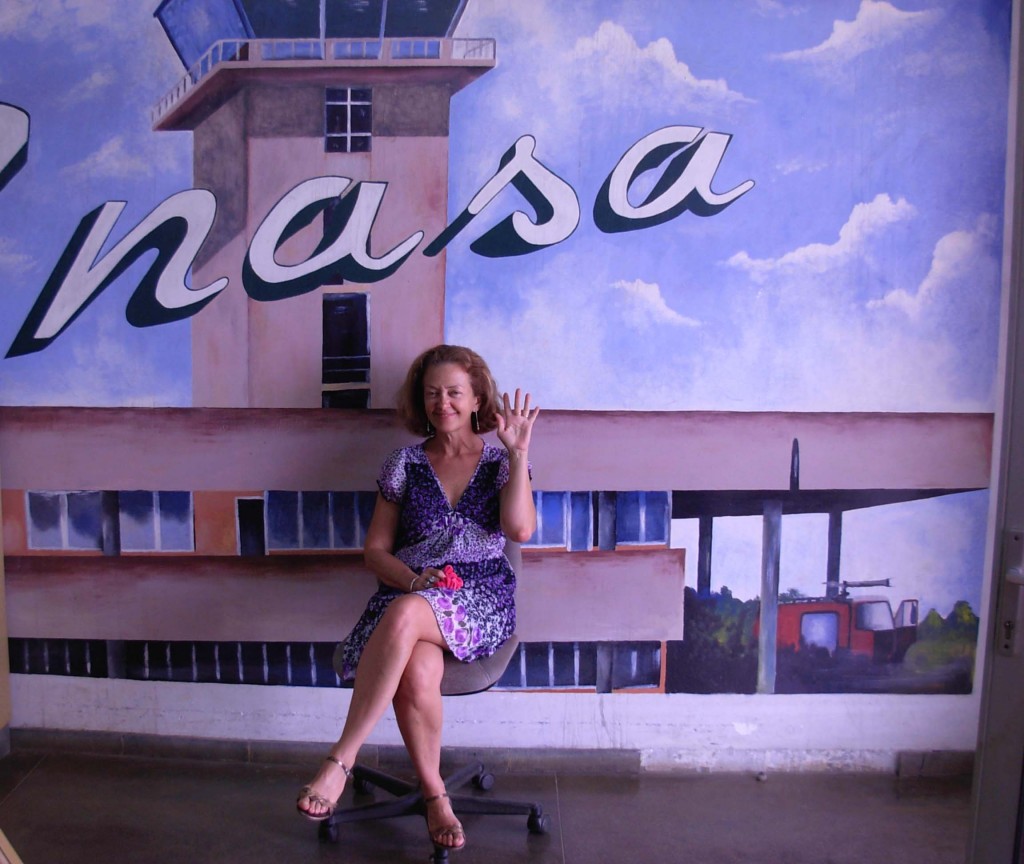
Passenger in transit: "The real voyage of discovery consists not in seeking new landscapes but in having new eyes." Marcel Proust. Pic by Claudio Corallo.
I like the word transitions: it evokes change, birth, adaptation, growth.
This has been an exciting journey of discovery of a new medium. As the philosopher George Santayana wrote: “There is wisdom in turning as often as possible from the familiar to the unfamiliar; it keeps the mind nimble; it kills prejudice, and it fosters humor.”
Over seven months, , the pictures got bigger, the voices varied, my style freer. It was intellectually rewarding to look every week at the rich variety of IPS stories on gender and be inspired by them to write a new blog.
I will miss the weekly postings on gender, although I will continue blogging on health issues in Mozambique here:
http://knight.icfj.org/OurFellows/FromtheFieldFellowBlogs/
I want to thank my fellow bloggers, you, the readers, and, most importantly, IPS, for this opportunity to add a spicy mix to the MDG3 Gender Portal. I enjoyed it immensely and I hope you did too.
Peace in 2010.
]]>
